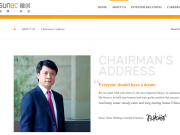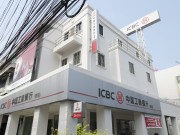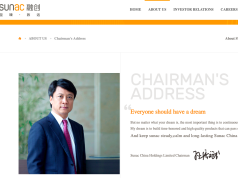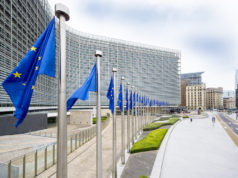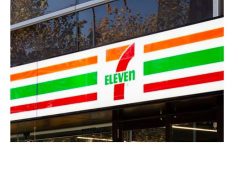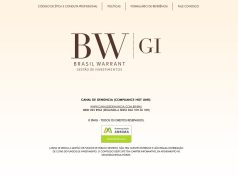World Largest & German Reinsurance Group Munich Re Leaves United Nations Net-Zero Insurance Alliance, Limited Opportunities in Alliance to Manage Anti-trust Risks and More Effective to Pursue Climate Ambition Independently
5th April 2023 | Hong Kong
The world largest reinsurance & German group Munich Re has discontinued its membership in the United Nations Net-Zero Insurance Alliance, citing limited opportunities in the alliance to manage anti-trust risks and more effective to pursue its own climate ambition independently. Munich Re is one of the world’s leading providers of reinsurance, primary insurance and insurance-related risk solutions, and offers customers financial protection including the 1906 San Francisco earthquake to Hurricane Ian in 2022. Joachim Wenning, CEO of Munich Re: “In our view, the opportunities to pursue decarbonisation goals in a collective approach among insurers worldwide without exposing ourselves to material antitrust risks are so limited that it is more effective to pursue our climate ambition to reduce global warming individually. Our climate commitment is unwavering. We follow scientific recommendations. To date we are decarbonizing even faster than what is required to reach net zero by 2050.” In 2022 December, Vanguard, the world’s largest asset manager with $8.1 trillion AUM (Q3 2022, Assets under Management), announced the decision to quit the Net Zero Asset Managers Initiative (NZAMI), which requires asset managers to reach net zero emissions by 2050 for all AUM.
“ World Largest & German Reinsurance Group Munich Re Leaves United Nations Net-Zero Insurance Alliance, Limited Opportunities in Alliance to Manage Antitrust Risks and More Effective to Pursue Climate Ambition Independently “
The UN-convened Net-Zero Insurance Alliance (NZIA) is a group of some of the world’s leading insurers and reinsurers representing a significant percentage of world premium volume globally. NZIA members have committed to transition their insurance and reinsurance underwriting portfolios to net-zero greenhouse gas (GHG) emissions by 2050, consistent with a maximum temperature rise of 1.5°C above pre-industrial levels by 2100, in order to contribute to the implementation of the Paris Agreement on Climate Change. As risk managers, insurers and investors, the insurance industry has an important role in the transition to a net-zero global economy. The NZIA is a member-led group that supports its members as they work towards decarbonising their underwriting portfolios by individually setting science-based intermediate targets and reporting on their progress annually. The Alliance will also advocate for and engage in governmental policies for a science-based and socially just transition of economic sectors to net-zero.
World Largest & German Reinsurance Group Munich Re Leaves United Nations Net-Zero Insurance Alliance

Munich Re discontinues NZIA Membership
31st March 2023 – Munich Re has discontinued its membership in the Net-Zero Insurance Alliance (NZIA).
Joachim Wenning, CEO of Munich Re: “In our view, the opportunities to pursue decarbonisation goals in a collective approach among insurers worldwide without exposing ourselves to material antitrust risks are so limited that it is more effective to pursue our climate ambition to reduce global warming individually. Our climate commitment is unwavering. We follow scientific recommendations. To date we are decarbonizing even faster than what is required to reach net zero by 2050.”
Munich Re is sticking to its ambitious climate targets:
- In a first step, GHG emissions related to the investment portfolio will be reduced by 29% by the end of 2025, and thereafter successively brought down to net zero by 2050.
- As for the exploration and production of oil and natural gas (primary insurance, direct and facultative reinsurance), Munich Re will be reducing its climate-related industry exposure in such a way that there will be no associated net GHG emissions by 2050. In a first step, we aim to reduce emissions by 5% by 2025. As of April 2023, Munich Re will not insure projects involving new oil and gas fields or new midstream oil infrastructure. At the same time, Munich Re will reduce thermal-coal-related exposure in its direct and facultative insurance business by 35% Group-wide by 2025, before eliminating this exposure altogether by 2040. Since 2018, we have stopped insuring new coal-fired plants, coal mines and since 2019 oil sand mines.
- Regarding the emissions from its own operations, Munich Re has been carbon-neutral since 2015 and previously reduced CO2 emissions per employee by 44% from 2009 to 2019. Current GHG emissions are to be reduced by a further 12% per employee by 2025. By 2030, Munich Re expects to achieve net-zero GHG emissions in its operations.
Munich Re is one of the world’s leading providers of reinsurance, primary insurance and insurance-related risk solutions. The Group consists of the reinsurance and ERGO business segments, as well as the asset manager MEAG. Munich Re is globally active and operates in all lines of the insurance business. Since it was founded in 1880, Munich Re has been known for its unrivalled risk-related expertise and its sound financial position. It offers customers financial protection when faced with exceptional levels of damage – from the 1906 San Francisco earthquake to Hurricane Ian in 2022. Munich Re possesses outstanding innovative strength, which enables it to also provide coverage for extraordinary risks such as rocket launches, renewable energies or cyber risks. The Group is playing a key role in driving forward the digital transformation of the insurance industry, and in doing so has further expanded its ability to assess risks and the range of services that it offers. Its tailor-made solutions and close proximity to its customers make Munich Re one of the world’s most sought-after risk partners for businesses, institutions, and private individuals.
$8.1 Trillion Asset Manager Vanguard Quits Net Zero Asset Manager Initiatives, Requires All AUM to Reach Net Zero Emissions by 2050

8th December 2022 – Vanguard, the world’s largest asset manager with $8.1 trillion AUM (Q3 2022, Assets under Management), has announced the decision to quit the Net Zero Asset Managers Initiative (NZAMI), which requires asset managers to reach net zero emissions by 2050 for all AUM. Vanguard: “We have decided to withdraw from NZAM so that we can provide the clarity our investors desire about the role of index funds … … And about how we think about material risks, including climate-related risks – and to make clear that Vanguard speaks independently on matters of importance to our investors.” In November 2022, the Net Zero Asset Managers Initiative had 291 signatories with a total of $66 trillion AUM. See below for more info on Net Zero Asset Managers Initiative | Visit Website
Vanguard – Founded in 1975, Vanguard is one of the world’s leading investment management companies. The firm offers investments, advice, and retirement services to individual investors, institutions, and financial professionals. Vanguard operates under a unique, investor-owned structure where Vanguard fund shareholders own the funds, which in turn own Vanguard. As such, Vanguard adheres to a simple purpose: To take a stand for all investors, to treat them fairly, and to give them the best chance for investment success. For more information, visit vanguard.com.
Official – An update on Vanguard’s engagement with the Net Zero Asset Managers initiative (NZAM)
7th Dec 2022 – More than 30 million individual investors around the world have chosen to entrust Vanguard with their hard-earned savings. We have a singular goal to maximize their long-term returns and give them the best chance for investment success as they save for retirement, a child’s education, a home, or simply a more secure financial future.
Approximately 80% of our clients’ assets are invested through index funds, which provide broadly diversified access to stock and bond markets at minimal cost. Index fund managers don’t choose the securities in a fund or dictate a portfolio company’s strategy or operations. Instead, they buy and hold all securities included in the benchmark index and capture the return that the market provides. In the words of our founder, Jack Bogle, rather than searching for the needle in the haystack, buy the whole haystack. It’s an approach that has helped build wealth for tens of millions of everyday investors. Importantly, indexing relies on efficient and fair capital markets. Companies’ disclosure of material financial risks is central to that market health, which is why material risk identification and disclosure is a critical priority for Vanguard.
Climate change, and the ongoing global response, will have far-reaching economic consequences for companies, financial markets, and investors, presenting a clear example of a material and multifaceted financial risk. Vanguard has been taking steps to understand and attend to this risk to investors’ returns, including through our engagements with portfolio companies, policymakers, and broader industry efforts. As part of these efforts, and consistent with our commitment to promoting portfolio company disclosure of material financial risks, Vanguard joined the Net Zero Asset Managers initiative (NZAM) in 2021. Such industry initiatives can advance constructive dialogue, but sometimes they can also result in confusion about the views of individual investment firms. That has been the case in this instance, particularly regarding the applicability of net zero approaches to the broadly diversified index funds favored by many Vanguard investors. Therefore, after a considerable period of review, we have decided to withdraw from NZAM so that we can provide the clarity our investors desire about the role of index funds and about how we think about material risks, including climate-related risks—and to make clear that Vanguard speaks independently on matters of importance to our investors. This decision is part of our continuous assessment of our participation in external organizations and their ongoing alignment with Vanguard’s mission and perspectives on investing.
This change in NZAM membership status will not affect our commitment to helping our investors navigate the risks that climate change can pose to their long-term returns. We will continue to provide investors the information and products they need to make sound investment choices, including products designed to meet net zero objectives. We will continue to interact with companies held by Vanguard funds to understand how they address material risks, including climate risk, in the interests of long-term investors. And we will continue to publicly report on our efforts with respect to climate risk, grounded in our deep commitment to our investors and their financial well-being.
Net Zero Asset Managers initiative
The Net Zero Asset Managers initiative is a group of international asset managers committed to supporting the goal of net zero greenhouse gas emissions by 2050 or sooner, in line with global efforts to limit warming to 1.5 degrees Celsius; and to supporting investing aligned with net zero emissions by 2050 or sooner.
It is an initiative designed to mobilise action by the asset management industry that demonstrates leading practice in driving the transition to net zero and delivers the ambitious action and investment strategies that will be necessary to achieve the goal of net zero emissions. It also provides a forum to share best practice and overcome barriers to aligning investments to that net zero goal.
The initiative will be managed globally by six Founding Partner investor networks, namely: Asia Investor Group on Climate Change (AIGCC), CDP, Ceres, Investor Group on Climate Change (IGCC), Institutional Investors Group on Climate Change (IIGCC) and Principles for Responsible Investment (PRI). In turn, the initiative is endorsed by The Investor Agenda, of which the investor networks are all founding partners.
The Net Zero Asset Managers initiative launched in December 2020 and aims to galvanise the asset management industry to commit to a goal of net zero emissions.
The initiative is endorsed by Investor Agenda and governed by six investor networks (listed below) – also referred to as the ‘Network Partners’. The Steering Committee of the Network Partners’ CEOs is responsible for the coordination and implementation of the initiative, which includes ensuring that relevant support is provided to signatories to enable best practice implementation of the commitment.
An Advisory Group of asset manager signatories informs the Steering Committee in its management and coordination of the Net Zero Asset Managers initiative. The current Advisory Group members are: Edward Mason (Generation Investment Management), Catherine Ogden (Legal and General Investment Management), Charles Nguyen (Neuberger Berman), Silva Dezelan (Stafford Capital Partners), Takeshi Wada (Sumitomo Mitsui Trust Asset Management) and Wendy Cromwell (Wellington Management). The initiative is open to any asset manager globally that is also a member of one of the Network Partner networks. For more information on the initiative please contact us.
The Net Zero Asset Managers Commitment
In line with the best available science on the impacts of climate change, we acknowledge that there is an urgent need to accelerate the transition towards global net zero emissions and for asset managers to play our part to help deliver the goals of the Paris Agreement and ensure a just transition.
In this context, my organisation commits to support the goal of net zero greenhouse gas (‘GHG’) emissions by 2050, in line with global efforts to limit warming to 1.5°C (‘net zero emissions by 2050 or sooner’). It also commits to support investing aligned with net zero emissions by 2050 or sooner.
Specifically, my organisation commits to:
a. Work in partnership with asset owner clients on decarbonisation goals, consistent with an ambition to reach net zero emissions by 2050 or sooner across all assets under management (‘AUM’)
b. Set an interim target for the proportion of assets to be managed in line with the attainment of net zero emissions by 2050 or sooner
c. Review our interim target at least every five years, with a view to ratcheting up the proportion of AUM covered until 100% of assets are included
In order to fulfil these commitments my organisation will:
For assets committed to be managed in line with the attainment of net zero emissions by 2050 or sooner (under commitment b)
1. Set interim targets for 2030, consistent with a fair share of the 50% global reduction in CO2 identified as a requirement in the IPCC special report on global warming of 1.5°C
2. Take account of portfolio Scope 1 & 2 emissions and, to the extent possible, material portfolio Scope 3 emissions
3. Prioritise the achievement of real economy emissions reductions within the sectors and companies in which we invest
4. If using offsets, invest in long-term carbon removal, where there are no technologically and/or financially viable alternatives to eliminate emissions
5. As required, create investment products aligned with net zero emissions by 2050 and facilitate increased investment in climate solutions
Across all assets under management
6. Provide asset owner clients with information and analytics on net zero investing and climate risk and opportunity
7. Implement a stewardship and engagement strategy, with a clear escalation and voting policy, that is consistent with our ambition for all assets under management to achieve net zero emissions by 2050 or sooner
8. Engage with actors key to the investment system including credit rating agencies, auditors, stock exchanges, proxy advisers, investment consultants, and data and service providers to ensure that products and services available to investors are consistent with the aim of achieving global net zero emissions by 2050 or sooner
9. Ensure any relevant direct and indirect policy advocacy we undertake is supportive of achieving global net zero emissions by 2050 or sooner
Accountability
10. Publish TCFD disclosures, including a climate action plan, annually, and submit them to the Investor Agenda via its partner organisations for review to ensure the approach applied is based on a robust methodology, consistent with the UN Race to Zero criteria, and action is being taken in line with the commitments made here
We recognise collaborative investor initiatives including the Investor Agenda and its partner organisations (AIGCC, CDP, Ceres, IGCC, IIGCC, PRI, UNEPFI), Climate Action 100+, Climate League 2030, Paris Aligned Investment Initiative, Science Based Targets Initiative for Financial Institutions, UN-convened Net-Zero Asset Owner Alliance, among others, which are developing methodologies and supporting investors to take action towards net zero emissions. We will collaborate with each other and other investors via such initiatives so that investors have access to best practice, robust and science based approaches and standardised methodologies, and improved data, through which to deliver these commitments.
We also acknowledge that the scope for asset managers to invest for net zero and to meet the commitments set forth above depends on the mandates agreed with clients and clients’ and managers’ regulatory environments. These commitments are made in the expectation that governments will follow through on their own commitments to ensure the objectives of the Paris Agreement are met, including increasing the ambition of their Nationally Determined Contributions, and in the context of our legal duties to clients and unless otherwise prohibited by applicable law. In some asset classes or for some investment strategies, agreed net zero methodologies do not yet exist. Where our ability to align our approach to investment with the goal of net zero emissions by 2050 is, today, constrained, we commit to embark with determination and ambition on a journey, and to challenge and seek to overcome the constraints we face.
Target setting approaches
The commitment is designed to be ‘methodology neutral’ and asset managers may choose the most appropriate target methodology for their business. The network partners, through the Investor Agenda, recognise and endorse three target setting approaches:
- Paris Aligned Investment Initiative’s Net Zero Investment Framework (NZIF)
- Science Based Targets initiative for Financial Institutions (SBTi)
- Net Zero Asset Owner Alliance Target Setting Protocol (TSP)
To ensure targets are robust and science-based, asset managers should choose one or a combination of the above methodologies. If asset managers wish to use an alternative methodology, they should explain the rationale in their disclosure and reporting, including how their alternative methodology is in line with best available science on achieving the 1.5°C goal of the Paris Agreement.
Within a year of becoming a signatory, asset managers are required to disclose:
- The initial percentage of their portfolio that will be managed in line with net zero
- Their ‘fair-share’ interim targets for AUM that will be managed in line with net zero, and target
- date
- The methodology used in target setting
Interim targets should cover all of the funds or mandates that a manager commits to manage in line with net zero emissions by 2050. Fulfilling the commitment is likely to be contingent on working in partnership with asset owner clients.
What constitutes a ‘fair share’ of CO2 emissions reduction may depend on several factors. For example, a portfolio may have already achieved significant emissions reductions, which may result in a shallower trajectory required to be in line with net zero while remaining consistent with an overall global net zero trajectory. The sectoral or regional exposure may also influence the level of the target given the expected pace of decarbonisation varies between sectors and regions, and should be in line with 1.5°C scenarios.
The targets should be reviewed at least every five years. The expectation – as set out in part c) of the commitment – is that the proportion of AUM covered by the target will grow over time until 100% of assets are included, by 2050 at the latest. It is possible, however, that there may be times when the proportion has to be restated downwards, for example if a manager’s AUM declines. Similarly, the interim target may need to be restated if there are significant changes in the profile of the AUM.
Transparency and accountability
An important feature of NZAM is that the commitment requires all signatories to publicly disclose the proportion of assets to be managed in line with net zero and the interim targets set. Furthermore, all signatories will report annually in line with TCFD recommendations, including information on their climate action plan, and progress towards targets.
The initial disclosure to the Network Partners must be made within 12 months of joining the initiative and includes information on:
- Proportion of AUM to be managed in line with net zero
- If less than 100% AUM is initially committed, a brief explanation of why the proportion is the maximum currently achievable and how it will increase over time
- Baseline and target years
- Quantified target(s) to be achieved by target year
- Methodology used to set targets
- Coverage of Scope 1, 2 and extent of Scope 3 coverage of financed emissions
- Underlying science-based net zero scenarios/pathway from which targets are derived
- Brief description of how the asset manager considers the target to be consistent with delivering a fair share of the 50% global reduction in CO2 emissions by 2030 identified as a requirement in the IPCC special report on global warming of 1.5°C
- Information on the asset manager’s policy in relation to fossil fuel investment
Following the initial disclosure, signatories will then report annually to demonstrate implementation of the commitment and progress against their target. This will begin in the first reporting cycle following the 12-month disclosure and investors will report via CDP or PRI annual reporting processes, and the information will be publicly available. CDP and PRI are currently updating their reporting platforms to integrate the elements of the Net Zero Asset Managers initiative commitment.
To ensure transparency and rigorous accountability, annual reporting is expected to follow TCFD recommendations, set out the elements of a signatory’s climate action plan, and report on actions taken and progress made against all elements of the 10-point commitment.
The Investor Agenda has produced expectations for an investors’ climate action plan, including the following components:
- Investment
- Corporate engagement
- Policy advocacy
- Investor disclosure
- Governance
The network partners work closely with asset managers to ensure all signatories are taking action in line with the commitments made and reporting appropriately. Signatories that do not declare the proportion of assets to be managed in line with net zero, interim target and methodology within one year of signing the commitment will receive an initial notification from the network partners requesting the appropriate declaration. If this is not addressed within one year, the signatory will be delisted from the initiative, following notification by the network partners.
Signatories that do not provide any annual reporting against commitment requirements will receive an initial notification from the network partners. If this is not addressed within one year, the signatory will be delisted from the initiative following notification by the network partners. In the first two years of a signatory joining the initiative, the network partners may provide feedback to any signatory that is not providing adequate evidence in reporting that they are meeting other aspects of the commitment, to improve their compliance.
The network partners may propose further elements or assurance of compliance through the reporting process, following this introductory period to build capability around compliance.
The Steering Committee also has the right to refuse an asset manager’s request to join the initiative where it has reason to doubt the asset manager’s ability or intent to comply with the commitment, or if their joining the initiative may otherwise damage the credibility and reputation
of the initiative.
Sign Up / Register
Caproasia Users
- Manage $20 million to $3 billion of assets
- Invest $3 million to $300 million
- Advise institutions, billionaires, UHNWs & HNWs
Caproasia Platforms | 11,000 Investors & Advisors
- Caproasia.com
- Caproasia Access
- Caproasia Events
- The Financial Centre | Find Services
- Membership
- Family Office Circle
- Professional Investor Circle
- Investor Relations Network
Monthly Roundtable & Networking
Family Office Programs
The 2025 Investment Day
- March - Hong Kong
- March - Singapore
- July - Hong Kong
- July - Singapore
- Sept- Hong Kong
- Sept - Singapore
- Oct- Hong Kong
- Nov - Singapore
- Visit: The Investment Day | Register: Click here
Caproasia Summits
- The Institutional Investor Summit
- The Investment / Alternatives Summit
- The Private Wealth Summit
- The Family Office Summit
- The CEO & Entrepreneur Summit
- The Capital Markets Summit
- The ESG / Sustainable Investment Summit


